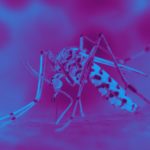Lien vers Pubmed [PMID] – 30922304
Malar. J. 2019 Mar;18(1):106
BACKGROUND: Following the scale-up of intervention efforts, malaria burden has decreased dramatically in Solomon Islands (SI). Submicroscopic and asymptomatic Plasmodium vivax infections are now the major challenge for malaria elimination in this country. Since children have higher risk of contracting malaria, this study investigated the dynamics of Plasmodium spp. infections among children including the associated risk factors of residual P. vivax burden.
METHODS: An observational cohort study was conducted among 860 children aged 0.5-12 years in Ngella (Central Islands Province, SI). Children were monitored by active and passive surveillances for Plasmodium spp. infections and illness. Parasites were detected by quantitative real-time PCR (qPCR) and genotyped. Comprehensive statistical analyses of P. vivax infection prevalence, molecular force of blood stage infection (FOB) and infection density were conducted.
RESULTS: Plasmodium vivax infections were common (overall prevalence: 11.9%), whereas Plasmodium falciparum infections were rare (0.3%) but persistent. Although children acquire an average of 1.1 genetically distinct P. vivax blood-stage infections per year, there was significant geographic heterogeneity in the risks of P. vivax infections across Ngella (prevalence: 1.2-47.4%, p < 0.01; FOB: 0.05-4.6/year, p < 0.01). Malaria incidence was low (IR: 0.05 episodes/year-at-risk). Age and measures of high exposure were the key risk factors for P. vivax infections and disease. Malaria incidence and infection density decreased with age, indicating significant acquisition of immunity. G6PD deficient children (10.8%) that did not receive primaquine treatment had a significantly higher prevalence (OR: 1.77, p = 0.01) and increased risk of acquiring new bloodstage infections (FOB IRR: 1.51, p = 0.03), underscoring the importance of anti-relapse treatment.
CONCLUSION: Residual malaria transmission in Ngella exhibits strong heterogeneity and is characterized by a high proportion of submicroscopic and asymptomatic P. vivax infections, alongside sporadic P. falciparum infections. Implementing an appropriate primaquine treatment policy to prevent P. vivax relapses and specific targeting of control interventions to high risk areas will be required to accelerate ongoing control and elimination activities.

